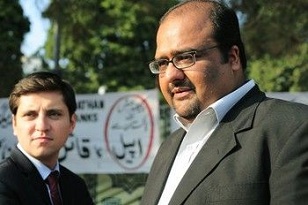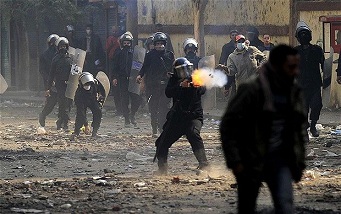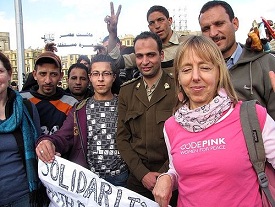Obama Administration Silencing Pakistani Drone-Strike Lawyer

Lawyer Mirza Shahzad Akbar (right)
When is the last time you heard from a civilian victim of the CIA’s secret drone strikes? Sure, most of them can’t speak because they’re deceased. But many leave behind bereaved and angry family members ready to proclaim their innocence and denounce the absence of due process, the lack of accountability, the utter impunity with which the U.S. government decides who will live and die.
In the wake of the 9/11 attacks, the U.S. government has increasingly deployed unmanned drones in the Middle East, South Asia and Africa. While drones were initially used for surveillance, these remotely controlled aerial vehicles are now routinely used to launch missiles against human targets in countries where the United States is not at war, including Pakistan, Somalia and Yemen. As many as 3,000 people, including hundreds of civilians and even American citizens, have been killed in such covert missions.
The U.S. government will not even acknowledge the existence of the covert drone program, much less account for those who are killed and maimed. And you don’t hear their stories on FOX News, or even MSNBC. The U.S. media has little interest in airing the stories of dirt poor people in faraway lands who contradict the convenient narrative that drone strikes only kill “militants.”
But in Pakistan, where most strikes have occurred, the victims do have someone speaking out on their behalf. Shahzad Akbar, a Pakistani lawyer who co-founded the human rights organization Foundation for Fundamental Right, filed the first case in Pakistan on behalf of family members of civilian victims and has become a critical force in litigating and advocating for drone victims.

































